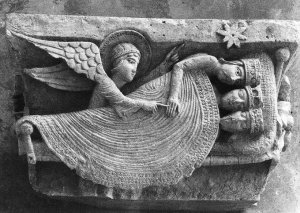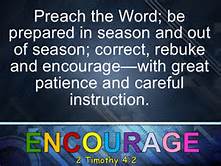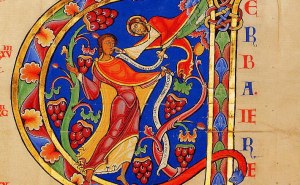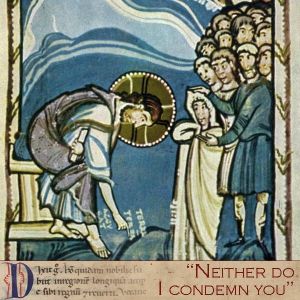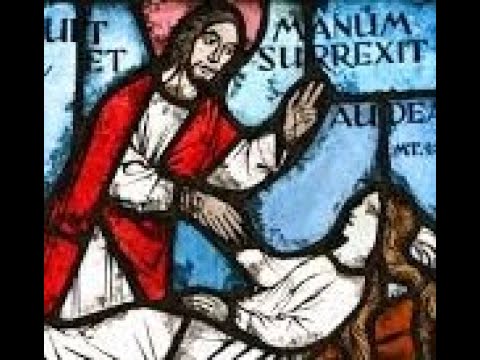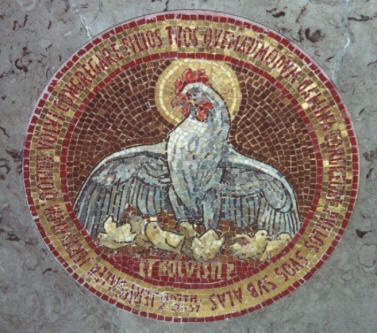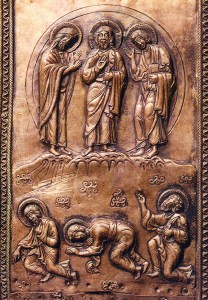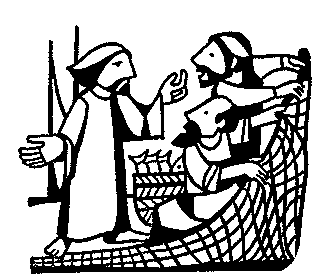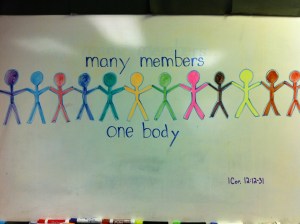John 14:1-6, 25-28 – February 1, 2026

(I preached at a memorial service last weekend for a dear woman. Here is the slightly edited meditation on her chosen Scripture reading.)
“Home: Where Jesus Is”
Home. There’s no place like home. I know this feeling is not true for all people, but it’s very true for many people, around the world. Many of us have a deep craving to go home, to be comfortable, with familiar people we know and love. Have you ever been away from home for a long time, and returned at last? Perhaps felt the satisfaction, the deep-down joy at being your own neighborhood, on those familiar streets once more? And especially, in your own bed?
I know that our dear sister had that feeling, growing up for a number of years in an orphanage in Iowa. Yes, there were loving people at the orphanage, but it just wasn’t home.
That is one of the deep emotions our Lord Jesus taps into in today’s reading from the Gospel of John, chapter 14. It is the evening of the Passover Dinner, the Last Supper on Thursday night. He knows His time on this earth is almost over. Jesus gives His disciples as much reassurance as possible. “Do not let your hearts be troubled. You believe in God; believe also in me. 2 My Father’s house has many rooms; if that were not so, would I have told you that I am going there to prepare a place for you?”
A place, especially for you. That heartfelt feeling of “home” is something that goes deep, indeed. Sure, many people grow up at home. Families are at home. Beloved pets are at home. Even all of our stuff is oftentimes at home.
Remember the movie “The Wizard of Oz”? That MGM mega-blockbuster made in 1939 had Dorothy, played by Judy Garland, singing a song early in the movie about what she imagined about a special place for her. “Somewhere Over the Rainbow” was almost cut from the finished movie by MGM, because they thought that it slowed down the pace of the movie.
This longing, this yearning for a home somewhere far away, somewhere over the rainbow, is deep within the human psyche. As commentator Chris Lohrstorfer says, ““Somewhere over the Rainbow” encapsulates our own wandering heart’s desire for a promised land of rest and restoration. It speaks to our hope – our need for somewhere else.” [1]
The disciples, Jesus’s friends, often did not understand what He was about. Again and again we see how much they did not understand what He said. How often do we misunderstand the words of Jesus, too?
Also remember, the Rabbi Jesus had been an itinerant Rabbi for three years. That meant that Jesus had no permanent residence. He had no home! In Matthew 8 and the parallel passage in Luke 9, “Jesus replied, ‘Foxes have dens and birds have nests, but the Son of Man has no place to lay his head.’”
Several people I know are resident aliens. Citizens of another country, they live here in the United States for an extended time. With school visas or work visas, they often cannot live here permanently. True, they can learn, go to school, go to work and provide for their families and loved ones, and go about all the other activities involved with living a full life, but they cannot have a full, deep sense of “home.” There’s no place like home, as Dorothy said.
Here in John 14, we hear Jesus letting the disciples know He understood them, deeply, intimately, completely. We know Jesus can understand us and our problems, too. He knows every tear that falls, even those silent and sorrowful tears that redden our eyes late at night. He knows all the pains and suffering that can come into our lives day by day. Jesus shows us that finding that place called “home” is often not a place, but a relationship. The next verse, from John 14: “3 And if I go and prepare a place for you, I will come back and take you to be with me that you also may be where I am.”
See? Jesus is not leaving His disciples all alone. Jesus understood about “home.” He understands our deep need for rest and restoration. He promised to get a place ready for us!
Jesus shares with us – His home, His inheritance, His position. We now are “children of God.” Can you imagine the great love that speaks to us? [2]
This is not only good news, this is great news! The absolutely best news that anyone could ever have delivered to them. This is good news for each of us, and it is good news that our dear sister is rejoicing in, right now, in heaven! We do know for sure, because Jesus tells us in these verses, that God will be with us and take care of us after we die. So, we and every person we love who dies are okay. [3]
Today, we all can look forward to finally going home, where Jesus is. Where Jesus has gotten everything ready for us. Where there will be no more crying, no more tears, no more fighting or wars or conflict of any kind. Jesus has promised! Such Good News. Alleluia! Amen.
[1] http://wbs.edu/2016/06/theres-no-place-like-home/, Dr. Chris Lohrstorfer
[2] http://wbs.edu/2016/06/theres-no-place-like-home/, Dr. Chris Lohrstorfer
[3] http://worshipingwithchildren.blogspot.com/2014/03/year-the-fifth-sunday-of-easter-may-18.html
Worshiping with Children, Easter 5A, Including children in the congregation’s worship, using the Revised Common Lectionary, Carolyn C. Brown, 2014.

